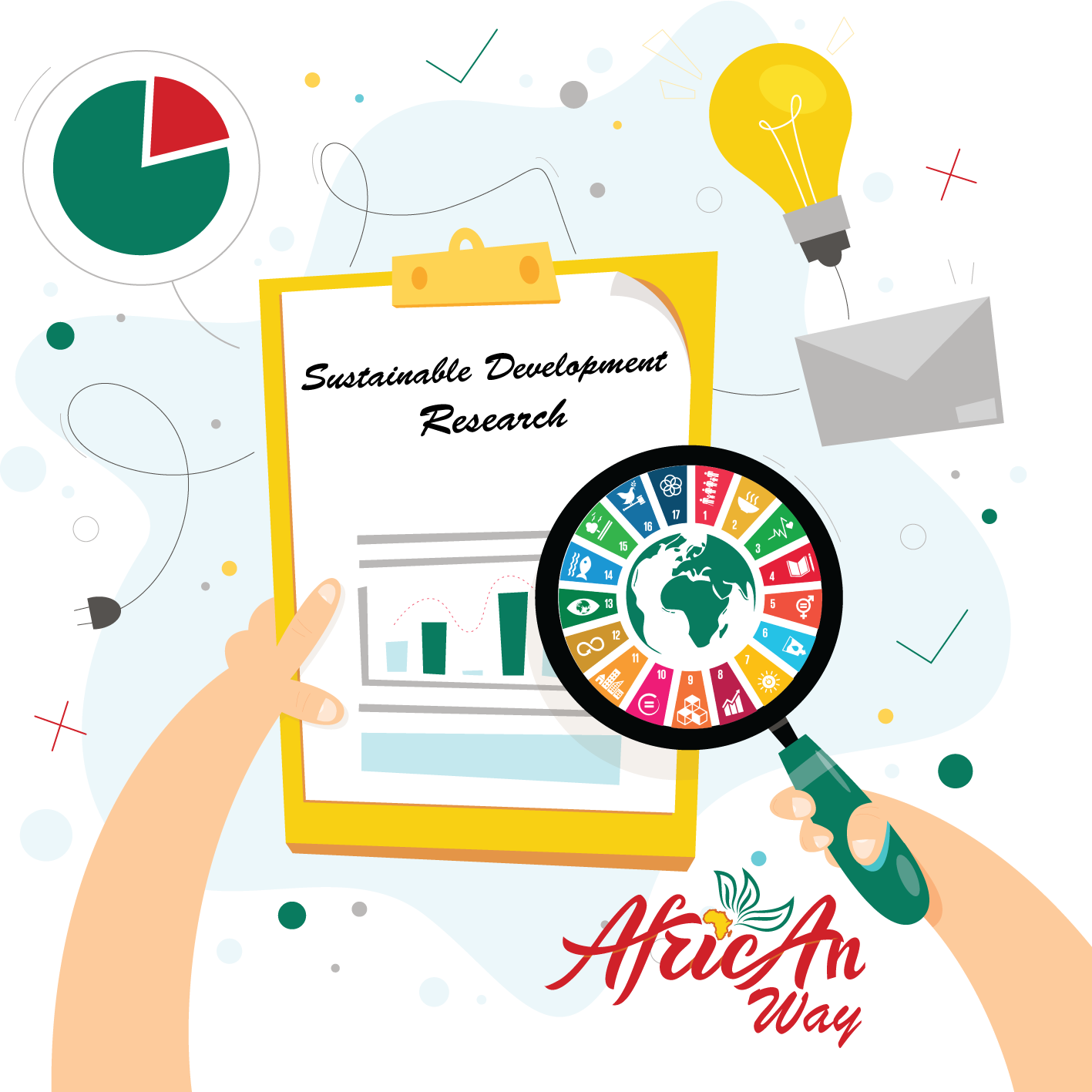SUSTAINABLE DEVELOPMENT RESEARCH

African Way have been discussing and designing, together with our stakeholders, strategies to achieve the UN Sustainable Development Goals by 2030, which voices the change we want to collectively bring into the world, and showcases the ancestral knowledge and sustainable alternatives it carries.
These strategies are in line with the UN SDGs Agenda 2030, the UN Decade on Ecosystem Restoration, and the Paris Agreement. It was designed following an inclusive, transparent, and open discussion held in Tamera Peace Research Centre, located in Southern Portugal, in March 2020. Over 20 local youth associations and groups in Cameroon, in Better World Cameroon - BWC NGO portfolio, Portugal and Germany, and the University of Coimbra researched into a community-university collaboration and consultations, including business stakeholder groups. All sides showed a keen interest in the subject and enthusiasm for upholding human values, land restoration and youth climate action. Other youth and women organizations also expressed their willingness to get more actively involved.
In order to address this common wish we aim to build international partnerships to connect with local participants who want to collectively co-create a climate justice campaign education, and to mobilize international support for Bafut Ndanifor Ecovillage reconstruction.
Our experience through BWC NGO, which has worked with many youth and community projects over the past 25 years, spanning youth and women's networks, non-profit organizations, school systems, universities and others, shows us that this path is possible.
BWC NGO has worked with many youth and community projects for the past 25 years, spanning across youth and women networks, non-profits, school systems, universities, and others. BWC NGO also collaborated with individuals and professional institutions that support research and education of and for change, as well as with youth and women leaders to deepen their capacity to realize the full potential of their missions and collective dreams. Interestingly, over the last decade, we have observed the more popular advent of systems change in the field of organizational development. Nonetheless, real system change hasn’t been achieved because of the vision every organization holds of the concept and how it enters in contradiction with itself sooner or later in the process.
At African Way we see it as a domain of collective effort that can lead to a more comprehensive, lasting, and effective transformation for communities, neighborhoods, women, and groups promoting youth engagement and employment in regenerative agriculture and food systems. In this context, the African Way seeks to dispel the myth of the ineffectiveness of African systems by bringing essential contributions to approaches on climate change adaptation and the SDGs implementation, while maintaining their intimate connection with deep ecology and equity.
Our projects and programs work to broaden traditional definitions of education inside the communities and to strengthen civil society for a more expansive and holistic process of empowerment. Improved access to information and improved human rights while also creating a means of monitoring transparency, corruption and progress toward the SDGs.
Therefore, the African Way calls for a global commitment to:
BWC ONG and African Way’s perspectives and experiences have shown that research and sustainable development are inseparable both in Africa and the rest of the world. The degree of healing needed in our world and our collective institutions and communities requires nothing less than depth in equity in climate action and effective partnerships at this time of global transformation.
African Way´s call to action for Research in Sustainable Development:
We are grateful to have you as a strategic partner for improving lives. We look forward to working with you in making a more significant impact together to:
We commit to improving traditional ways of living so marginalized people can find a voice, and also be able to share traditional knowledge to promote environmental protection and climate resilience. We believe that knowledge generated through scientific research has a big role to play in achieving progress towards the SDGs as a whole.
